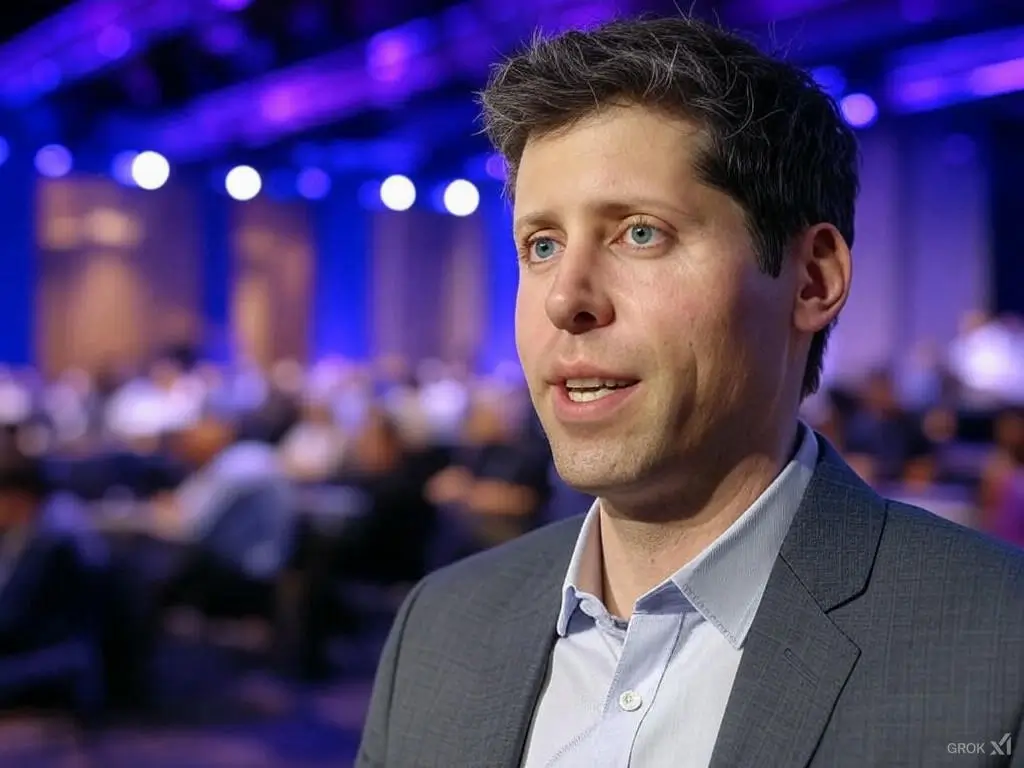Sam Altman's Bold Revelation: Why OpenAI is Set to Embrace Lessons from DeepSeek

In a recent session on Reddit, Sam Altman, the CEO of OpenAI, made headlines by openly questioning the company's previous strategies concerning the open-sourcing of artificial intelligence (AI) technology. His comments come at a time when the AI landscape is rapidly shifting, propelled by developments from competing companies such as DeepSeek, which has emerged as a formidable player within the industry. Altman's reflections and the subsequent strategic pivots OpenAI appears ready to embrace could reshape the competitive dynamics in AI.
A Reflection on Open-Sourcing
Originally established as a nonprofit aimed at promoting transparency in AI research, OpenAI has gradually transitioned towards a more closed, proprietary model, particularly following the launch of products like ChatGPT. In his candid remarks, Altman acknowledged the possibility that OpenAI might have strayed from its foundational commitment to open science. He notably commended Meta's approach, which has favored open-sourcing, and highlighted DeepSeek's innovative methods that are garnering attention for their efficiency and cost-effectiveness.
DeepSeek, a newcomer to the AI field, has astonished experts by claiming to have developed a model that rivals OpenAI’s GPT-1 at a fraction of the cost—reportedly only $5.58 million using 2,000 Nvidia H800 GPUs. If verified, this would contrast starkly with the billions OpenAI has invested in its infrastructure. This revelation raises essential questions about whether extensive funding is necessary for cutting-edge AI performance, challenging the assumptions held by industry giants like Microsoft and Meta, who recently spent upwards of $80 billion and $65 billion respectively on AI infrastructure.
The Race for Transparency
One of the key features setting DeepSeek apart from OpenAI is the level of transparency. DeepSeek has designed a system that allows users to observe the reasoning process behind its outputs—a stark contrast to OpenAI's more opaque Chain of Thought models. Responding to this competitive edge, Altman announced plans to enhance the transparency of OpenAI’s models, allowing users insight into the reasoning behind decisions—a notable shift toward greater openness inspired by DeepSeek.
Furthermore, Altman hinted at potential discussions within OpenAI regarding the release of model weights, akin to DeepSeek and Meta's practices. While he specified that this is not an immediate priority, it indicates a willingness within OpenAI to reassess its approach to sharing its technology.
Launch of 03 Mini
In an effort to respond to DeepSeek's prominence, OpenAI introduced a new mini AI model called 03 Mini, designed to be both cost-effective and highly efficient for specific tasks such as science, mathematics, and coding. This model allows users to adjust the reasoning level, making it versatile for a range of complex problems. This launch illustrates OpenAI's strategy to offer a competitive alternative to emerging players in the AI space, ensuring they maintain their relevance amidst rapid advancements from rivals.
Legal and Personal Challenges
Beyond these strategic shifts, Altman is currently facing potential legal challenges. His sister has filed a lawsuit alleging past abuse spanning several years. The lawsuit seeks $75,000 in damages, a relatively modest amount for someone of Altman’s stature, yet the implications for both his personal life and OpenAI’s reputation could be substantial. The joint family statement denying the allegations highlights the sensitive nature of these claims, which, if they gain traction, could create ripples affecting OpenAI's brand and operational focus.
The Vision for Stargate
In addition to these tumultuous developments, Altman is spearheading a massive $500 billion project dubbed "Stargate." The initiative, aimed at constructing the largest private computing infrastructure in history, has garnered skepticism due to its ambitious scale and funding challenges. Industry experts worry that the viability of such a colossal investment may falter, especially considering historical precedents with similar ventures. Proponents argue, however, that as AI technology evolves, infrastructure advancements are crucial for sustaining growth.
Adapting to Change
As the AI landscape evolves, OpenAI finds itself at a crossroads. With disruptive competitors like DeepSeek emerging and a renewed focus on transparency and efficiency, Altman's bold revelations indicate a potential shift in OpenAI's operational ethos. The lessons learned from DeepSeek's success represent an opportunity for OpenAI to adapt and refine its approaches to technology, transparency, and community engagement.
In conclusion, as Altman navigates both the competitive and personal challenges before him, the industry's eyes are keenly focused on how OpenAI will pivot in response to these revelations. Whether through renewed commitments to open-sourcing or efficient model development, the decisions made now could define the future trajectory of AI innovation.
